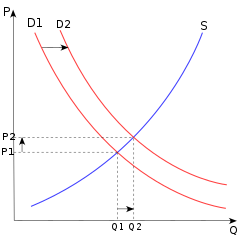Tuesday, 7 June 2016
CO-OPERATIVE
A co-operative (also known as co-op, cooperative or coop) is an autonomous
association of people united voluntarily to meet their common economic,
social, and cultural needs and aspirations through a jointly owned and democratically controlled business.[1] Since 2002 cooperatives and credit unions could be distinguished on the Internet by use of a .coop domain.
A limited liability company (LLC) is the United States-specific form of a private limited company. It is a business structure that combines the pass-through taxation of a partnership or sole proprietorship with the limited liability of a corporation.[1] An LLC is not a corporation;
SOLE PROPRIETORSHIP
A sole proprietorship, also known as the sole trader or simply a proprietorship, is a type of business entity
that is owned and run by one natural person and in which there is no
legal distinction between the owner and the business.
DIVISION OF LABOUR
The division of labour is the separation of tasks in any economic system
so that participants may specialize. Individuals, organizations, and
nations are endowed with or acquire specialized capabilities and either
form combinations or trade to take advantage of the capabilities of
others in addition to their own. Specialized capabilities may include
equipment or natural resources in addition to skills and training and
these assets may contribute together, as when specialized equipment
requires skilled operators
THEORY OF PRODUCTION
Production theory is the study of production, or the economic process of converting inputs into outputs. Production uses resources to create a good or service that is suitable for use, gift-giving in a gift economy, or exchange in a market economy. This can include manufacturing, construction,[1] storing, shipping, and packaging. Some economists define production broadly as all economic activity other than consumption. They see every commercial activity other than the final purchase as some form of production.
Production is a process, and as such it occurs through time and space. Because it is a flow concept, production is measured as a “rate of output per period of time”. There are three aspects to production processes:
Production is a process, and as such it occurs through time and space. Because it is a flow concept, production is measured as a “rate of output per period of time”. There are three aspects to production processes:
DEMAND AND SUPPLY
Supply and demand
From Wikipedia, the free encyclopedia
For other uses, see Supply and demand (disambiguation).
| Part of a series on |
| Capitalism |
|---|
 |
|
Concepts[show]
|
|
Economic systems[show]
|
|
Economic theories[show]
|
|
Origins[show]
|
|
Development[show]
|
|
People[show]
|
|
Related topics[show]
|
|
Ideologies[show]
|
The price P of a product is determined by a balance between production at each price (supply S) and the desires of those with purchasing power at each price (demand D). The diagram shows a positive shift in demand from D1 to D2, resulting in an increase in price (P) and quantity sold (Q) of the product.
REAL MEANING OF CHOICE
Choice involves decision making. It can include judging the merits of multiple options and selecting
one or more of them. One can make a choice between imagined options
("what would I do if ...?") or between real options followed by the
corresponding action
SCALE OF PREFERENCE
Preference (economics)
From Wikipedia, the free encyclopedia
A simple example of a preference order over three goods
With the help of the scientific method many practical decisions of life can be modelled, resulting in testable predictions about human behavior
MEANING OF SCARCITY AND WANTS
human wants have unlimited wants. That is to say that there is never such a time that a
human being is satisfied and not in need of anything. On the other
hand, resources available in nature, which should be used to meet those
human wants, are limited. The available resources can never be enough to
satisfy all human needs. This phenomenon, where there are unlimited
human wants which are to be met by very limited resources, is
essentially what economists call scarcity.
Monday, 6 June 2016
AREA OF SPECIALISATION
Resource Utilization
A
major component of economics is the way in which a community or
business uses available resources. Financial budgets, for instance,
involves prioritization decisions on where to invest limited monetary
resources. Manufacturing companies must figure out how to best use
equipment, labor and materials to develop goods in the most efficient
way. Decisions on how to preserve
HISTORY OF NIGERIA ECONOMY
Nigeria is a middle income, mixed economy and emerging market, with
expanding financial, service, communications, technology and
entertainment sectors. It is ranked as the 21st largest economy in the world in terms of nominal GDP, and the 20th largest in terms of Purchasing Power Parity.
It is the largest economy in Africa; its re-emergent
CAUSES OF DOWNFALL OF ECONOMY IN A NATION
Many things can cause the downfall of a nation's economy.like;change of Government,money laundry,multi party system and so on. Nigeria is really affected and our economy is bad.Nigeria became independent in the year 1960.Our first prime minister was ALHAJI SIR ABUBAKAR TAFAWA BALEWA presided by
Sunday, 5 June 2016
basic concept of economics
Economics belongs to a group of subject called SOCIAL SCIENCES other social science subject are: SOCIOLOGY,GEOGRAPHY,PSYCHOLOGY,GOVERNMENT,POLITICAL SCIENCE,RELIGIOUS STUDY,ANTHROPOLOGY AND PHILOSOPHY.Economics is regarded as a social science because it studies human behaviour. For example ,if the price of a commodity rises,people will buy less,while if the price of such commodity decreases
scope of economics
MEANING OF ECONOMICS
According to John Stuart Mill;Economics can be defined as "the practical science of production and distribution of wealth." To this man,economics is concerned with how people produce and distribute various goods and services that are required for the maintainance
According to John Stuart Mill;Economics can be defined as "the practical science of production and distribution of wealth." To this man,economics is concerned with how people produce and distribute various goods and services that are required for the maintainance
Subscribe to:
Comments (Atom)

